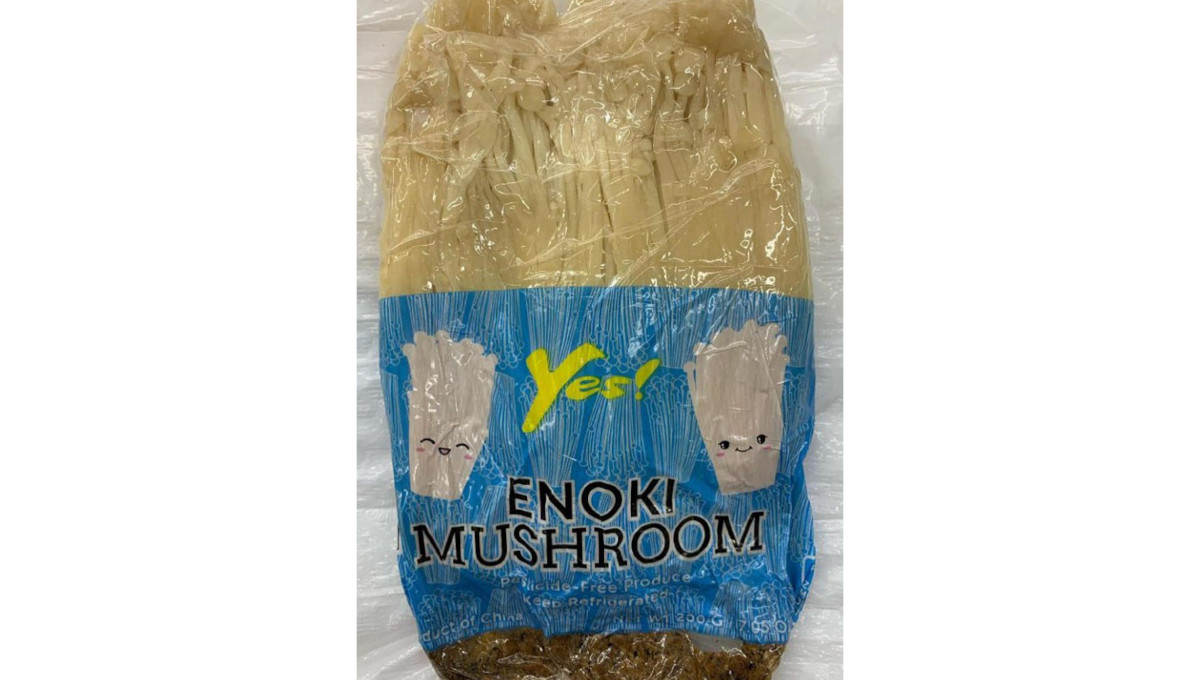T Fresh Company of City of Industry, CA, is recalling certain enoki mushrooms grown in China because of potential Listeria monocytogenes contamination.
The potential for contamination was noted after surveillance sampling by the California Department of Public Health (CDPH) revealed the presence of Listeria monocytegenes in 7.05oz (200g) packages of enoki mushroom.
The product was distributed from California and Texas to retail stores through produce distributors.
Recalled product:
- Product is packaged in a Light Blue and transparent plastic packaging, with ” Yes” logo for the 200g (7.5oz).
- Enoki mushrooms are white, stringy with small caps.
- The weight of the product is 7.5 oz (200g).
- The UPC barcode numbers are 825382736947 (200g), with no other codes.
As of the posting of this recall, no infections or illnesses have been reported in connection with the recalled product.
Consumers who have purchased our enoki mushrooms are urged to return them to the place of purchase for a full refund.
About Listeria infections
Food contaminated with Listeria monocytogenes may not look or smell spoiled but can still cause serious and sometimes life-threatening infections. Anyone who has eaten any recalled product and developed symptoms of Listeria infection should seek medical treatment and tell their doctors about the possible Listeria exposure.
Also, anyone who has eaten any of the recalled product should monitor themselves for symptoms during the coming weeks because it can take up to 70 days after exposure to Listeria for symptoms of listeriosis to develop.
Symptoms of Listeria infection can include vomiting, nausea, persistent fever, muscle aches, severe headache, and neck stiffness. Specific laboratory tests are required to diagnose Listeria infections, which can mimic other illnesses.
Pregnant women, the elderly, young children, and people such as cancer patients who have weakened immune systems are particularly at risk of serious illnesses, life-threatening infections, and other complications. Although infected pregnant women may experience only mild, flu-like symptoms, their infections can lead to premature delivery, infection of the newborn, or even stillbirth.
(To sign up for a free subscription to Food Safety News, click here)

